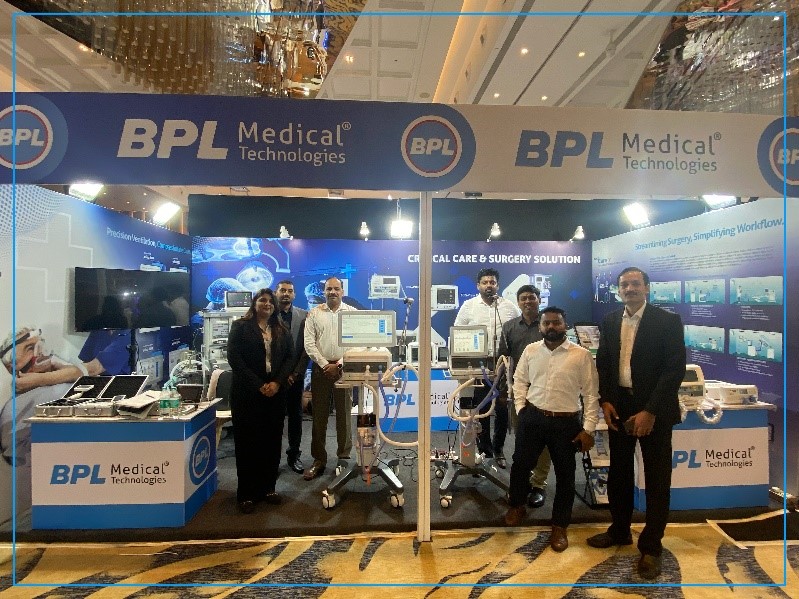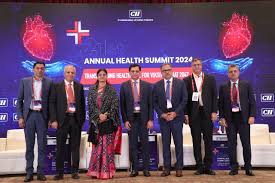Wolters Kluwer and ICC accentuate the need of Evidence-Based Medicine practice to provide quality care
Virtual conference on the need to adopt technologically integrated EBM practice Today’s healthcare ecosystem needs to be technologically integrated for clinicians to provide standardized care to their patient for better outcomes. The Covid-19 pandemic has brought

Virtual conference on the need to adopt technologically integrated EBM practice
Today’s healthcare ecosystem needs to be technologically integrated for clinicians to provide standardized care to their patient for better outcomes. The Covid-19 pandemic has brought a great havoc to the world, but it has been a driving force in adoption of digital technologies which existed but were underutilized. Based on the theme, ‘Making Evidence-Based Medicine Doable in Everyday’ Wolters Kluwer, a global provider of trusted clinical technology and evidence-based solutions organized a virtual conference in association with Indian Chamber of Commerce to deliberate the importance of adopting Evidence-Based Medicine (EBM) to enhance clinical decision-making and care of patients.
Eminent personalities from the medical fraternity like Dr. Shubhrajyoti Bhowmick, Clinical Director, Pearless Hospital; Dr. Rupali Basu, Co-Chair, ICC National Healthcare Committee, CEO and Director, Woodlands Hospital, Padmashree Prof. Dr. Kameshwar Prasad, Director, RIMS, Ranchi, Former Chief of Neurosciences Centre, AIIMS Delhi; Dr. Ashwini Jogade, Medical Suprintendent , Nanavati Super Specialty Hospital, Mumbai and Mr. Harish Ramachandran, Country Manager, Clinical effectiveness, Wolters Kluwer India were a part of this virtual conference.
Inaugurating the conference, Dr. Rupali Basu, Co-Chair, ICC National Healthcare Committee, CEO and Director, Woodlands Hospital said, “Covid-19 has taught us many lessons, one of which is the importance of accurate information dissemination, sharing of collective knowledge, sustained cooperation worldwide and the need to be intellectually unified. Healthcare needs to be highly integrated with evidence, needs to be more precise and a scientific based decision making is required. Adoption of Evidence-Based Medicine is necessary for a standardized care and reduce clinical negligence. As per a study by Harvard University, 5.2M injuries occur due to medical errors in India out of 43M globally. Therefore, adoption of such practices by health practitioners is of utmost importance to ensure right treatment to the patients.”
The discussion revolved around how evidence-based medicine has become an extremely important tool as a scientific method for using the best medical practice to achieve best patient outcome. In a country like India, where the ratio of doctor to patient is 1:1500, time is a crucial factor for all the clinicians. Technologically integrated EMB practice will heIp the clinicians to get the information on best medical practice at the point of care. It integrates clinical experience, research date, patient value to give the best possible treatment. Digital tools like UpToDate has also made the practice of EBM smooth as the information is available just a click away. Clinicians have changed their decision to treat patient through implementation of EBM 37% of the time.
Padmashree Prof. Dr. Kameshwar Prasad, Director, RIMS, Ranchi mentioned, “The adoption of Evidence-Based Medicine is absolutely necessary in India. To this date, only a few doctors and practitioners have idea about it. Hence, it is important to educate the medical fraternity about the importance and benefit of this practice. Medical students should also be encouraged to know about this practice from the beginning of their career to become the leading frontlines for tomorrow.”
Insisting on the importance of integrating Evidence based medicine practice, Mr. Harish Ramachandran, Country Manager, Clinical effectiveness, Wolters Kluwer India stated “We are working towards the goal of improving clinical practices in India and worldwide. Practicing Evidence-Based Medicine integrated with digital technologies have given an edge to clinicians to make informed clinical decisions and adopt best treatment for their patients. Our aim is to aid medical practitioners take right decision through adapting to EBM at the point of care to provide better patient outcomes, improve hospital quality and reduce medical errors and overall healthcare cost.”
The session concluded with the panelist emphasizing on the need of digital technologies to be integrated in healthcare. Like the huge surge seen in the use of telemedicine post Covid-19 pandemic, other practices like EBM should be given focus as it is imperative to practice it today as the approach helps to improve the quality of treatment, improve patient satisfaction and reduce costs to enrich the overall healthcare ecosystem.






